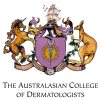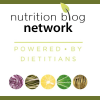Good nutrition is essential for optimizing an athlete’s performance or to get the most out of an exercise routine. Although an athlete’s diet is not very different from a normal healthy diet, the amount of protein, carbohydrates or fat that needs to be consumed is dependent on the type of sport or exercise routine, the amount of training you do and the amount of time you spend doing the activity or the exercise.
Prior to exercise, the goal is to have a meal that provides adequate glucose for energy, delay fatigue during prolonged exercise, prevent excessive dehydration, minimize gastrointestinal distress and satisfy hunger. The meal should ideally include a good amount of carbohydrate, protein, fat and fluid. Carbohydrates provide the glucose required for energy while the protein and fat help in promoting satiety. Examples of a meal prior to exercise include one bagel (3 oz.) with light cream cheese (2 tsp) and fruit juice (12 oz.). It is recommended to have the meal 1 – 4 hours prior to exercise because the onset of exercise causes an increased blood flow to muscles and decreased blood flow to the digestive tract which can lead to gastrointestinal distress.
It is important to replenish carbohydrate stores during exercise as well. This is not a concern if the workout or exercise routine is less than hour. However, this is important to consider for people indulging in high intensity workout routines to prevent the sugar levels in the blood becoming very low. Examples of carbohydrate snacks include cordial (750 ml), fruit (3 medium pieces) or a jam sandwich. It is also essential to frequently sip some water to prevent dehydration.
There is no generic diet which can optimize performance during exercise or sport – diet needs to be tailored to meet the athlete’s requirements
After exercise, one needs to consume adequate amount of carbohydrates to replenish muscle glycogen (stored glucose), adequate protein to repair muscle and adequate fluid to re-establish the proper hydration status. Examples of meals to consume after exercise include: 1 bread roll with cheese/meat filling with a banana or a fruit salad (300g) with fruit flavoured yoghurt (200g).
There is no specific ‘diet’ for optimizing performance during exercise routines or sports performances. The focus should be on eating adequate amounts of nutrient dense foods as fuel for your body. These are principles that may be useful to anyone who is physically active, not just athletes.
This article was written by our Dietitian and Nutritionist Juhi Bhambhaney. If you have questions about diet and nutrition, contact us to make an appointment to see one of our dietitians and nutritionists. We‘ll provide you with personalised and effective dietary management. Contact us today!
The post Nutrition for athletic performance and exercise appeared first on ENT Wellbeing Sydney.










